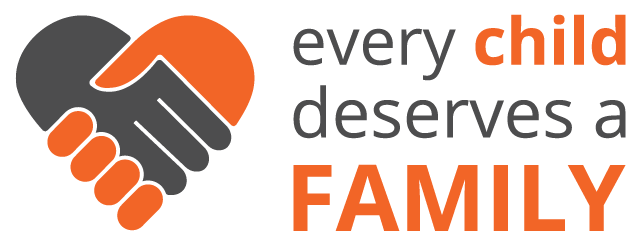LGBTQ+ Catholic Advocate Recounts her Foster to Adopt Journey
Marianne and Becky Duddy-Burke
Boston, MA
In the wake of the national trauma of September 11, 2001, we, like many other Americans, found ourselves in a period of reevaluating our lives. At that point, we’d been in relationship for over seven years, had held what we termed a sacramental marriage ceremony in 1998, and had a Vermont Civil Union in 2000. We had fulfilling jobs, a comfortable home, reasonably supportive family, and a large network of friends, many of whom were part of our Catholic faith community. Catholicism was important to both of us, as was the spirituality of the Sisters of Mercy, an international community of women religious with which we both had significant history, and whose mission is focused on serving poor women and girls. As we thought about the many blessings in our lives, we decided that we were ready to share them with one or more children. After much research and attending a daylong seminar on adoption, it became clear that adopting through the foster care system was the way to build our family that was most consistent with our values and spiritual beliefs.
In late January 2002, we began reaching out to the local Catholic Charities office, after learning that this agency handled the majority of foster and adoption services in the state. Despite leaving several messages asking about starting the process of being trained and licensed as pre-adoptive foster parents, we got no response. Finally, we reached a social worker who said she would call
us back shortly. During her lunch break, she drove away from her office and told us that, although if we insisted her agency would put us through the MAPP training, since they were required to by state contract, the supervisors would never approve placement of a child with us, since we were a lesbian couple. She said that most of the social workers found this policy abhorrent, but that the “higher ups” enforced church policy prohibiting adoption or fostering of children by same-sex couples, or individuals who identified as gay, lesbian or transgender.
We were crushed by this rejection, due to nothing more than the fact that we were a same-sex couple. These decisionmakers gave us no opportunity to discuss our motivation, caregiving experience, values, support systems, or anything else that factored into our desire to become parents. It was also very painful that this rebuff came from our own church, and from an agency whose good work we’d long admired.
It took us several weeks to find out that in Massachusetts we could apply for training and licensure as foster parents directly through the state child welfare department. We did eventually get connected with a local child welfare office, went through the training and licensure process, and received our first placement in November 2002, a 9-month old child who had been born drug addicted and was residing in a medical foster home after spending 2 months in a NICU. We finalized the adoption about a year later. She is now a first-year college student.
In 2007, we were matched with a second child, a 4-year old who had been in foster care for about seven months by the time of our match. This child had been so traumatized she was barely verbal, had behavior regulation challenges, and did not have basic skills like self-feeding. She was diagnosed with PTSD, global developmental delays and reactive attachment disorder. Through years of intensive therapies, educational support, and attention to a series of medical issues, our child, who now identifies as male, is excelling at schoolwork in a vocational high school, found his own first summer job, and has made tremendous progress in managing emotions and behaviors. His adoption was finalized in 2010.
In late 2018, a cousin of our older child was pregnant with twins. Her mother, our daughter’s biological aunt, was already raising this woman’s first child, and expressed real concerns that the twins would be go into state custody upon or soon after birth. At three weeks old, one twin died, and the other was placed in emergency foster care. The grandmother called and asked if we would consider providing care for the surviving baby. After much prayer and consideration, we agreed to foster the child but were clear we could not adopt her. The child was placed with us at 7 weeks old and spent over 18 months in our home. She moved to a pre-adoptive home in late June 2020. Our entire family and many in our church community and neighborhood helped to raise a happy, healthy infant to rambunctious toddlerhood.
In the nearly 20 years we have been involved in foster and adoptive care, we have helped to recruit other same-sex couples to become foster or adoptive parents, most of whom are raising children with significant trauma and/or special needs. We have provided emergency foster care for friends of our kids whose families faced crises and have been advocates for queer and transgender kids placed in group homes where they were clearly unsafe, helping to find them oster parents with the skills and knowledge needed to help them thrive. We have worked to
educate school officials on the often-hidden needs of students who have experienced family disruption, and the ways trauma impacts their educational and social development.
We are deeply committed to the belief that our society has a profound responsibility to children who become part of the child welfare system, and that each of these children deserves stability, appropriate care, the supports necessary to address the traumas they have suffered, and the love of a family and community dedicated to helping them reach their potential. They deserve what every child deserves, and no one willing to help them to thrive should be denied the chance to do that because of who they are.
